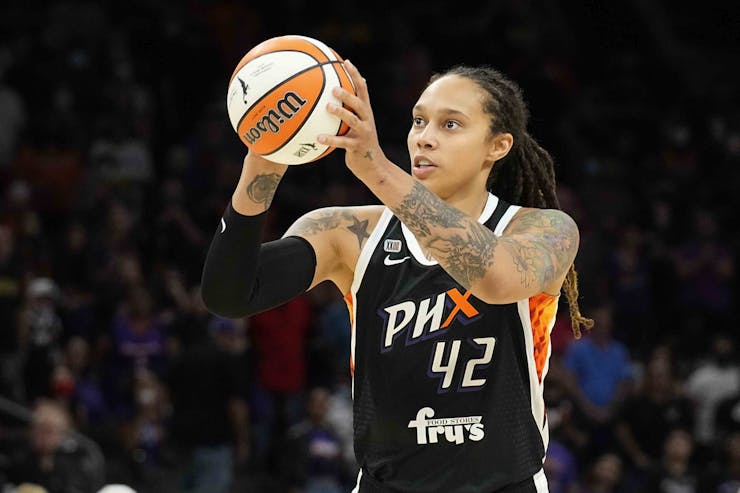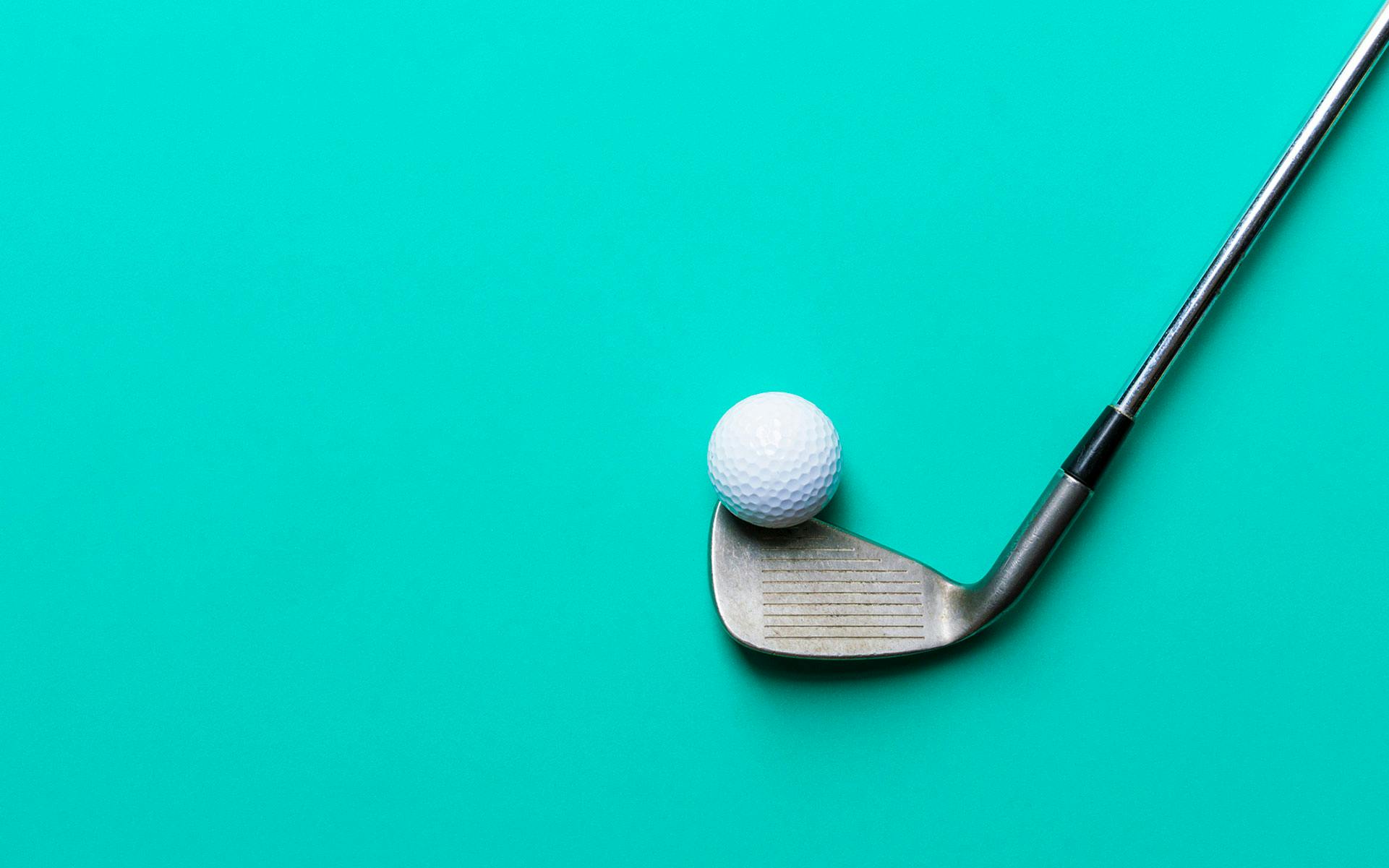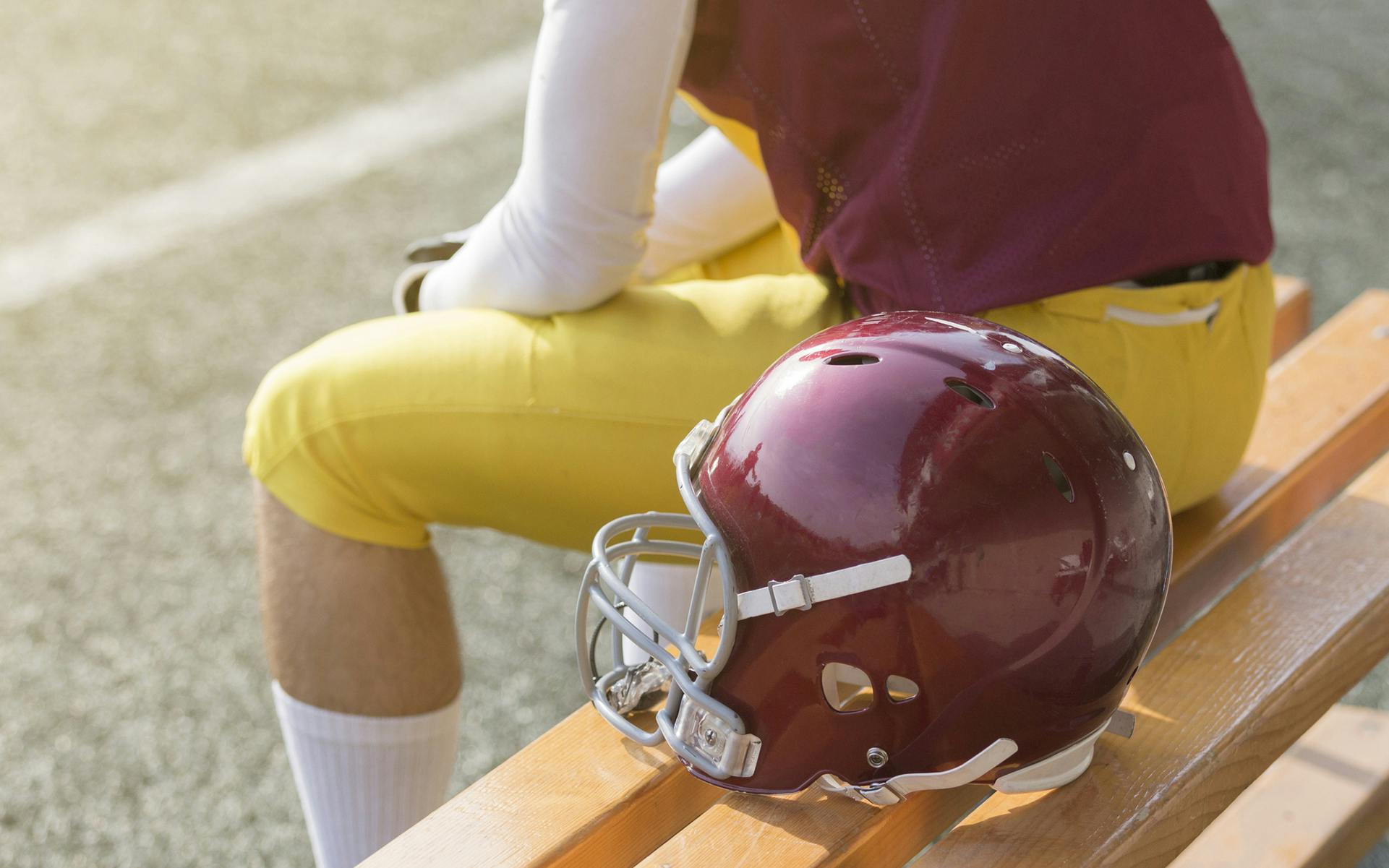Over the weekend, Russian officials announced that they had detained an American woman after discovering cannabis vape cartridges in her luggage. Russian news later revealed the woman to be seven-time WNBA All Star and two-time Olympic gold medalist Brittney Griner.
Pro athletes who use cannabis are no longer the exception. They’re the rule.
As Griner remains incarcerated in a Russian cell—and her wife and family plead for her release—her arrest brings a secret truth out into the open: Most pro athletes use cannabis. If Brittney Griner utilized vape cartridges as part of her professional regimen to stay at the top of her game, mentally and physically, she’s not the exception. She’s the rule.
While writing my recent book, Runners High: How A Movement of Stoned Athletes Is Changing The Science of Sports, I met scores of top tier athletes in every realm of sports who told me that they not only used cannabis in their training, recovery and sometimes even competition, but most of their colleagues do as well.
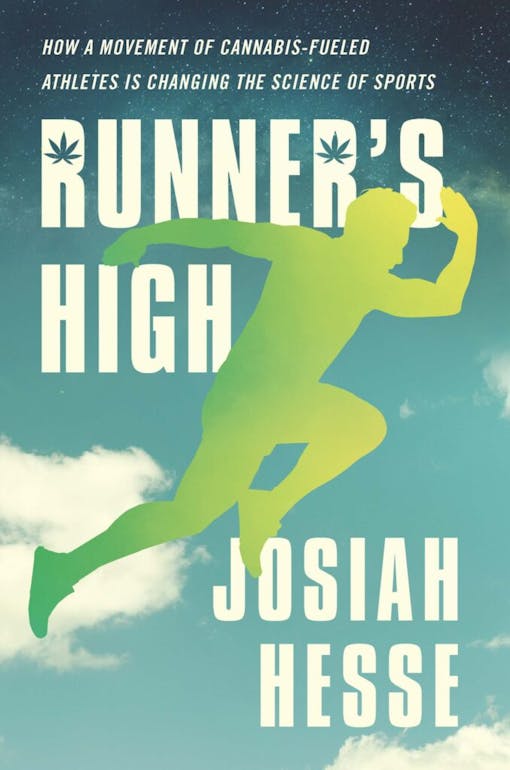
“Most of the ultramarathon runners are using it,” elite distance runner Avery Collins told me. Olympic rugby player Andrew Durutalo estimated that around 95% of his teammates and competitors utilized cannabis. Former Denver Nuggets power forward Kenyon Martin put that number around 85% for the NBA, and retired Dallas Cowboys tight end Martellus Bennett said it’s 89% for the NFL.
No surprise to those who’ve tried it
While this may come as a surprise to some fans, team owners, and regulators at the World Anti-Doping Agency (WADA), for anyone who’s tasted the magic cocktail of weed-and-workout it all makes perfect sense. I myself was a pack-a-day, sedentary waif before I started eating 10-20mg of THC and running up mountain trails. Last spring I tackled my first 50k.
The endocannabinoid system regulates nearly all human functions, so cannabis can act as a Swiss Army knife for health.
While cannabis use is remarkably consistent throughout pro sports, there is no one singular ailment all athletes are seeking to alleviate, or one single effect they’re pursuing. Since our body’s endocannabinoid system regulates nearly all of our human functions (sleep, mood, appetite, fertility, and so much more), cannabis can act as a kind of Swiss Army knife for health.
An interesting thing happened last fall during the promotional push for my book. Mainstream media outlets only want to ask me about cannabis as a pain management tool. This is fair, as opioids and other pharmaceuticals have been wreaking havoc on players’ minds and bodies for decades. As former NFL player Martellus Bennett once explained: “That shit, it ruins your liver. There’s a lot of these anti-inflammatories that you take for so long that like, it starts to eat at your liver or your kidneys and things like that. And a human made that. God made weed.”
Cannabis delivers many anti-inflammatory properties, as well as shifts our mind’s emotional relationship to pain (which no other pain medication does, as they just obliterate the sensation altogether). But cannabis offers athletes so much more.

Rest and recovery are the key to a pro career
There’s a reason CBD has become the latest darling of the athletic supplements world—inspiring celebrity-driven products from Megan Rapino, Mark Wahlberg and Mike Tyson—and it’s more than just CBD’s anti-inflammatory properties. As a sleep aid, CBD midwifes the most important phase of recovery, and research shows that CBD reduces muscle spasticity, a condition that seriously threatens the recovery process.
Most professional athletes travel a great deal, and will often follow that travel with multiple competitions in a short time frame. This is a dynamic well known to deployed members of the military. It forces an athlete to enter rest-and-recovery mode at a moment’s notice, grabbing it whenever they can find it. Those periods may become available at 2 a.m. or 2 p.m., depending on that day’s schedule. A non-toxic substance that can quickly guide a athlete in and out of that state, without leaving them disoriented afterward, has a lot of appeal to road-weary professionals.
Shop highly rated dispensaries near you
Showing you dispensaries nearThe World Anti-Doping Agency removed CBD from their banned substances list in 2018, but THC, unfortunately, is still prohibited. American sprinter Sha’Carri Richardson had her Olympic hopes famously dashed last summer when a drug test turned up positive for marijuana. Richardson had turned to cannabis to help her manage her grief over the sudden death of her mother.
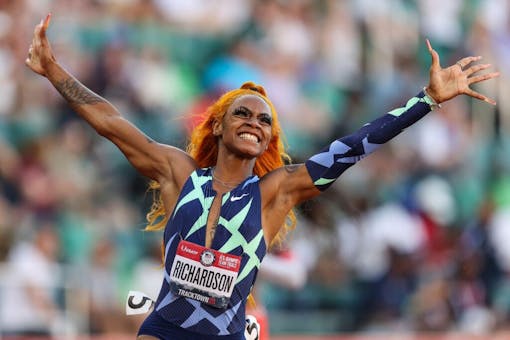
Stop with the ‘lazy stoner’ stigma
THC is often overlooked as an athletic aid, as it can be erroneously associated with the “lazy stoner” stigma of years gone by. Radio ads for some CBD brands even boast that their product contains “no THC” as if THC was a toxin.
In fact, THC is anything but. Not only does it boost the effects of CBD (famed cannabis scientist Ethan Russo once told me, “There’s nothing CBD does that isn’t improved by the addition of THC”), but it’s reported to put athletes into a myopic flow state, where all the ancillary chatter of sponsors, fans, judges and competition melt away, and they’re exclusively focused on the task at hand.
I’ve experienced this myself as a trail-runner. I heard it countless times from skiers, bodybuilders, cyclists, yoga instructors, basketball players and even golfers.
If you already have the muscle memory for the task—my rule has always been “Don’t try new things stoned”—then a bit of cannabis euphoria can introduce a childlike playfulness to what can otherwise be painful discipline, the two blending into a state that reminds the athlete why they fell in love with the sport in the first place.

WADA is reconsidering its cannabis policy
Following the Sha’Carri Richardson debacle, WADA officials announced they would be reviewing their cannabis policy. They are expected to announce their findings in 2022. They have no evidence that cannabis is a performance enhancing drug comparable to steroids or blood doping, and the case that it is harmful to athletes’ health pale in comparison to the effects of permitted pharmaceuticals.
The arrest of Brittney Griner goes far beyond a mere suspension from competition. Griner is caught up in both archaic drug laws and in the international conflict over Russia’s invasion of Ukraine. She faces the possibility of years in a Russian prison.
But like Sha’Carri Richardson and thousands of other professional athletes, Griner was simply managing her health, her career, and her athletic performance with a substance that most pro athletes use as a matter of course.
World champions, Olympic medalists, and good people
The cruel consequences they face are driven by politics and stigma, not by science and health. As former US Attorney General Jeff Sessions once put it: “Good people do not use marijuana.” This worldview demeans all cannabis users as lazy stoners, incapable of hard work or focused discipline.
But when looking at the athletes who use or have used cannabis—Sha’Carri Richardson, Michael Phelps, Martellus Bennett, Carmelo Anthony, Tim Lincecum, Ricky Williams, Nate and Nick Diaz, Brittney Griner—there is a consistent thread of incredible accomplishment. These are world champions, record holders, scoring leaders, Olympic gold medalists, Cy Young Award winners. If the vast majority of athletes are using cannabis—and research shows that humans who use cannabis are far more likely to exercise than those who don’t—there is a strong argument to be made for its hand-in-glove relationship to physical activity.
If Brittney Griner was in fact traveling with cannabis vape cartridges in her luggage, there’s no shame in her game. Like most other professional athletes, her game may be maintained and her health safeguarded by cannabis.
